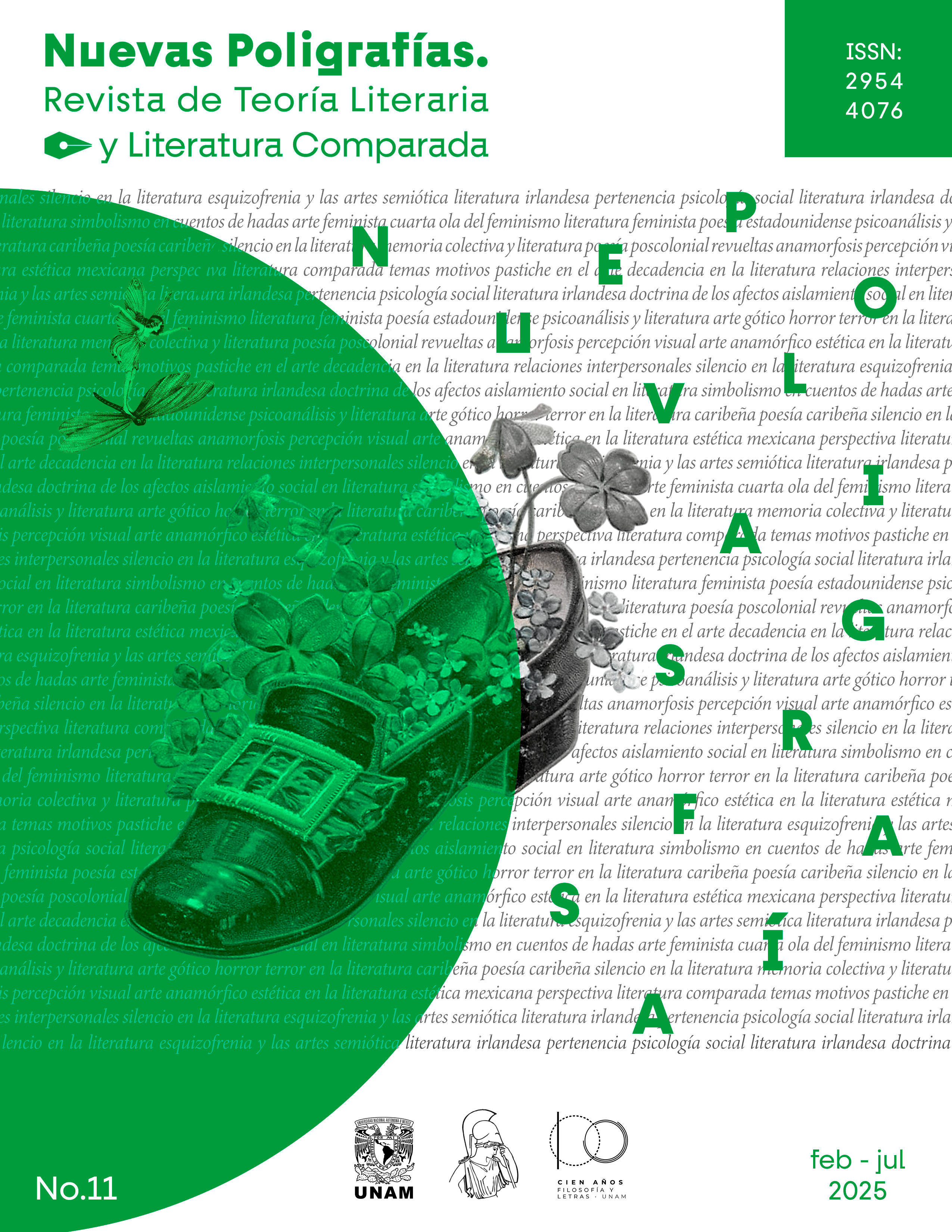Transactional Relationships and Schizophrenia in Mr Salary by Sally Rooney
Main Article Content
Abstract
This study aims at investigating Sally Rooney’s short story Mr Salary (2016). The complexities around human relationships have always interested Rooney, who asserted that “there is a shared knowledge that relationship forms of the past were not actually suited for everyone” (London Review Bookshop, 2019: 16:11). This is especially true considering the “cultural moment where certainties around relationships have deteriorated slightly” (London Review Bookshop, 2019: 17:17). In this regard, my analysis will develop under two key points. The first is Rooney’s depiction, in Mr Salary, of transactional relationships between the two protagonists, Sukie and Nathan, and between Sukie and her father, Frank, in the face of the economic changes brought about by the Celtic Tiger and post-Crash periods in Ireland. To make this point I will resort to the works of Barros Del Río (2022), Carregal Romero (2023), Bolfarine (2023), among others. The second point will focus on issues related to language, silence and (hindered) communication among the characters in Mr Salary by means of Fredric Jameson’s (1983) notion of schizophrenia, not in the clinical sense, but as a tool derived from cultural theory. According to Jameson, a consequence of global capitalism (as with schizophrenia) is a breakdown of the relationship between signifiers in language—which change the individual’s perception of time trapping them in an eternal present. My analysis will be directed at the way in which Sukie, the protagonist and first-person narrator, undergoes a process that enables her to move away from this eternal present and look into a future of new choices and possibilities.
Article Details

This work is licensed under a Creative Commons Attribution-NonCommercial 4.0 International License.
References
BARROS DEL RÍO, María Amor. (2022). “Sally Rooney’s Normal People: the millennial novel of formation in recessionary Ireland”. Irish Studies Review, 30(2), 176-192. https://doi.org/10.1080/09670882.2022.2080036
BOLFARINE, Mariana. (2023). “O corpo em sofrimento e a Irlanda dos millenials em ‘At the Clinic’, de Sally Rooney”. Letras de hoje, 58(1). https://dx.doi.org/10.15448/1984-7726.2023.1.44141
CAIN, Sian. How Mayo writer Sally Rooney became a literary phenomenon in the UK. Irish Times, [s. l.], Jan. 9, 2019.
CARREGAL-ROMERO, José. (2023). “Unspeakable Injuries and Neoliberal Subjectivities in Sally Rooney’s Conversations with Friends and Normal People”. In M. Teresa Caneda-Cabrera and José Carregal-Romero (Eds.), Narratives of the Unspoken in Contemporary Irish Fiction: Silences that Speak (pp. 213-233). Palgrave MacMillan. https://doi.org/10.1007/978-3-031-30455-2
CONRAD, Kathryn A. (2004). Locked in the Family Cell: Gender, Sexuality & Political Agency in Irish National Discourse. The University of Wisconsin Press.
FERRITER, Diarmaid. (2004). The Transformation of Ireland 1900-2000. Profile Books.
GRAY, Jane; GERAGHTY, Ruth; RALPH, David. (2016). Family Rythms: The Changing Textures of Family Life in Ireland. Manchester University Press.
JAMESON, Fredric. (1983). “Postmodernism and consumer society”. In Hal Foster (Ed.), The anti-aesthetic: Essays on postmodern culture (pp. 111-125). Bay Press.
LONDON REVIEW BOOKSHOP. (2019, May 8) Sally Rooney on Normal People, with Kishani Widyaratna [Video]. YouTube. https://www.youtube.com/watch?v=4jH_0rg46Es&t=994s
ROONEY, Sally. (2019). Mr. Salary. Faber & Faber. [Kindle]
SUCHODOLSKI, Veronica. (2019, October 4). “Why Calling Sally Rooney a ‘Millennial Novelist’ Does Her a Disservice”. Observer. https://observer.com/2019/04/sally-rooney-is-more-than-a-millennial-writer-normal-people-shows/
SUDJIC, Olivia. (2019, August 17). “Darkly Funny, desperate and Full of Rage: What makes a Millenial Novel?”. The Guardian. https://www.theguardian.com/books/2019/aug/17/what-makes-a-millennial-novel-olivia-sudjic
WOODS, Angela. (2011) “Postmodern schizophrenia”. In The Sublime Object of Psychiatry: Schizophrenia in Clinical and Cultural Theory (pp. 183-202). Oxford University Press. https://doi.org/10.1093/med/9780199583959.003.0007

